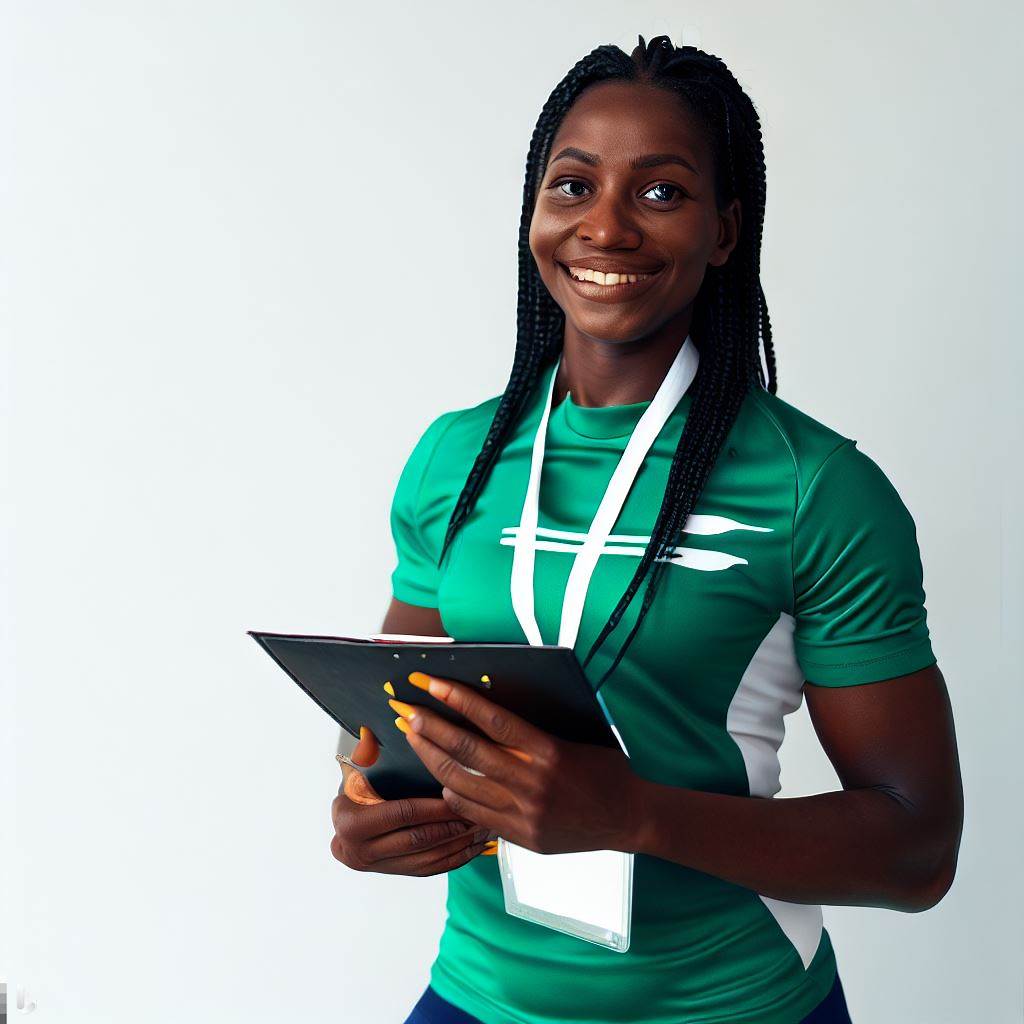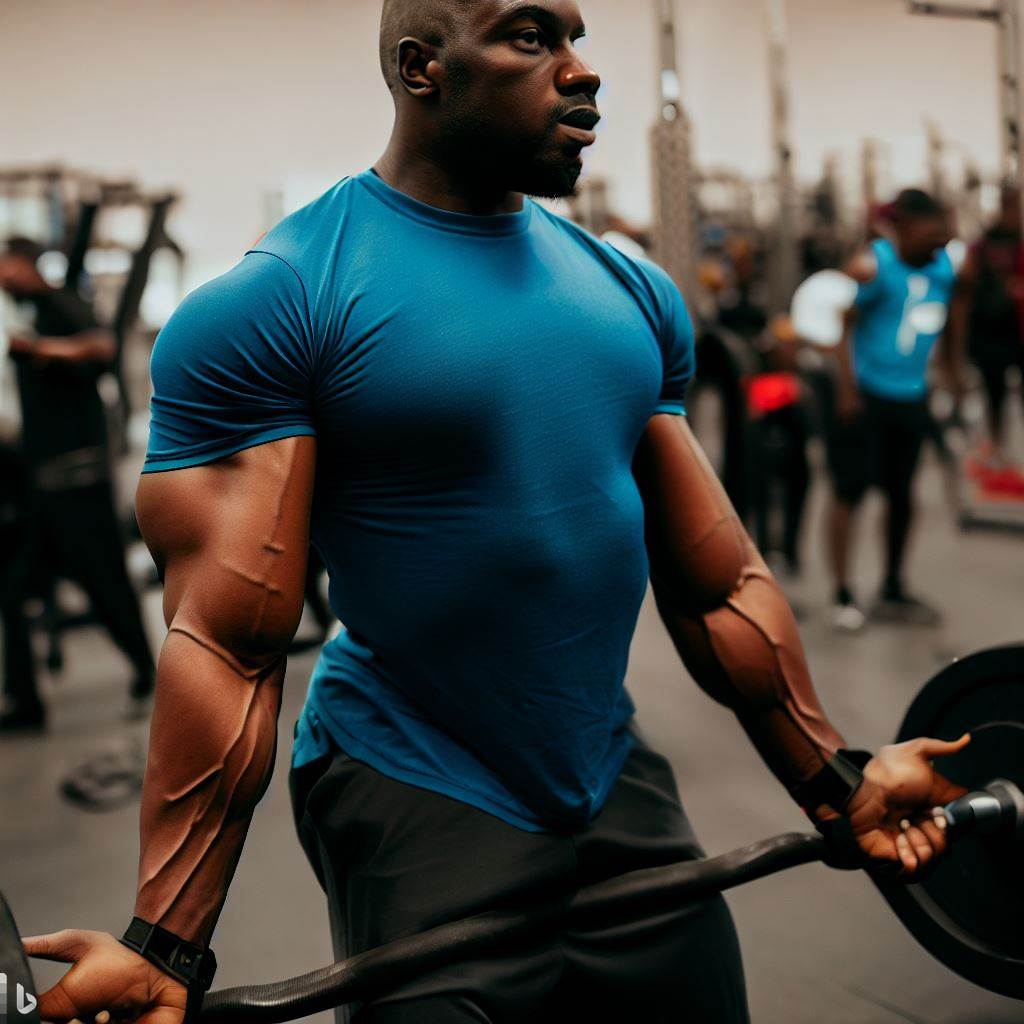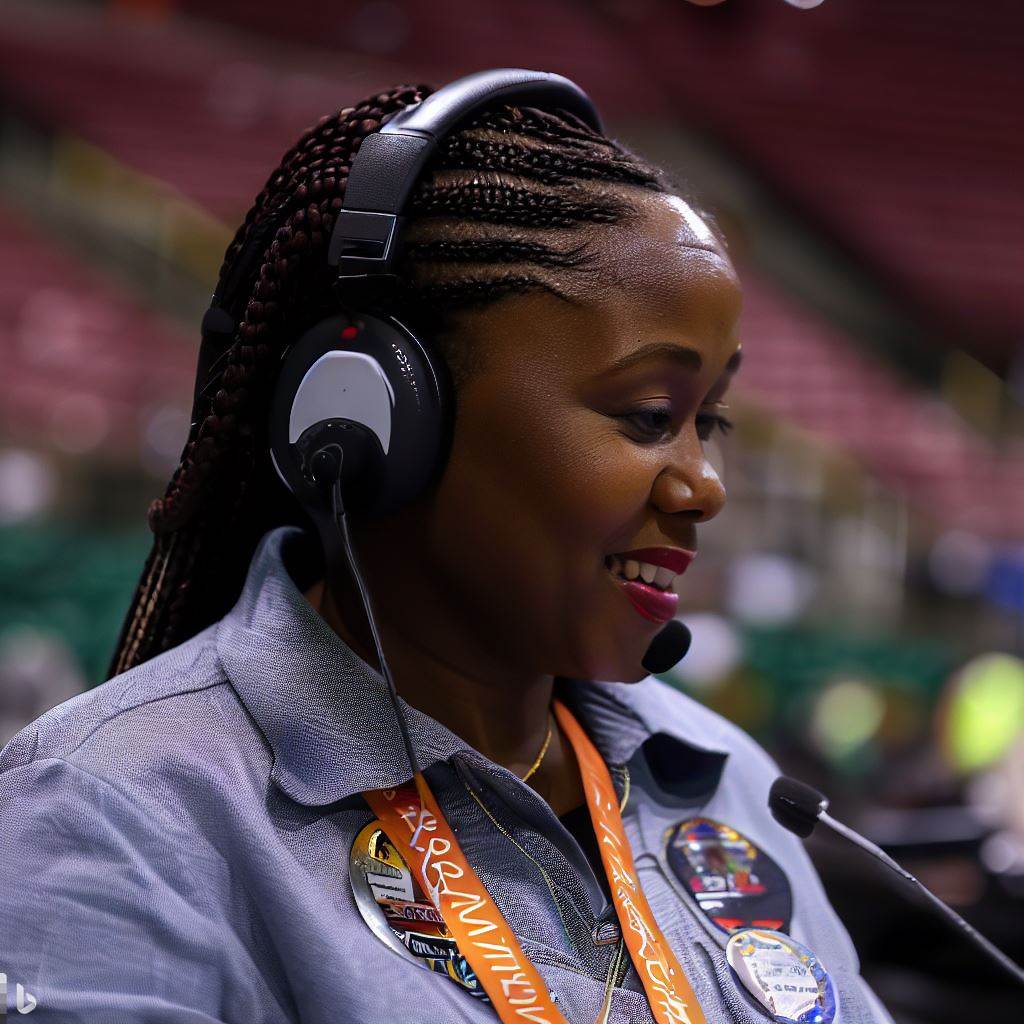Introduction
Definition of an Athletic Director
An athletic director is a pivotal figure in the realm of sports management. They oversee sports programs, budgets, and operations, ensuring smooth athletic endeavors.
Athletic directors are also responsible for fostering a culture of excellence within sports organizations, prioritizing athlete development.
They play a crucial role in managing resources, facilities, and scheduling, which are vital for sporting success.
These leaders serve as a bridge between athletes, coaches, and administrative bodies, facilitating effective communication.
Athletic directors spearhead fundraising efforts, securing funds for equipment, scholarships, and facility upgrades, bolstering sports development.
Importance of Athletic Directors in Sports Development
- Strategic Planning: Athletic directors formulate long-term strategies to enhance sports development at both grassroots and professional levels.
- Student-Athlete Welfare: They ensure the well-being of student-athletes, promoting academic success alongside athletic achievements.
- Facility Management: Athletic directors maintain top-notch facilities, as well as attracting talent and hosting high-profile events.
- Community Engagement: They engage with local communities, fostering a sense of belonging and support for sports.
- Compliance and Ethics: Athletic directors uphold ethical standards and compliance with regulations, safeguarding sports’ integrity.
In review athletic directors are the driving force behind Nigeria’s sports development, steering the nation toward sporting excellence.
Overview of Nigeria’s sports development
Historical background
- Nigeria has a rich history in sports, with traditional games played by various ethnic groups.
- Colonial influence introduced Western sports like football, athletics, and boxing in Nigeria.
- Independence saw an increased focus on sports development as a means of national identity and unity.
Challenges faced in sports development
- Lack of infrastructure, inadequate facilities, and poor maintenance hinder sports development in Nigeria.
- Inadequate funding and financial mismanagement limit the growth and success of sports programs.
- Corruption, political interference, and nepotism negatively impact the fairness and transparency of sports management.
- Limited access to quality coaching, training, and development programs hampers the progress of athletes.
Efforts made by the government and sports organizations
- The government established various sports ministries and agencies to oversee and promote sports development.
- Sports organizations, such as the Nigerian Olympic Committee and Nigerian Football Federation, play a crucial role.
- Government initiatives like the National Sports Festival aim to basically discover and nurture young talents across the country.
- Investments in sports facilities, stadiums, and training centers have been made to improve infrastructure.
- Sports scholarships and grants are provided to support athletes in their education and training.
- Collaborations with foreign sports organizations and coaches help raise the level of competitiveness in Nigerian sports.
- Public-private partnerships are encouraged to attract sponsorships and corporate support for sports development.
- Greater emphasis on grassroots sports development is being given to identify and develop young talents from early stages.
In short, Nigeria’s sports development faces challenges like lack of infrastructure, funding issues, and corruption.
However, efforts from the government and sports organizations are being made to overcome these challenges and promote sports at all levels.
With improved infrastructure, transparent management, and collaborations, Nigeria can harness its potential and produce world-class athletes.
Read: Success Stories: Top Athletic Directors in Nigeria
Role and responsibilities of athletic directors
Managing and organizing sports events
- Athletic directors are responsible for planning, coordinating, and executing various sports events.
- They arrange venues, schedules, and logistics to ensure smooth and successful competitions.
- Athletic directors oversee the registration process and handle communication with participating teams and athletes.
- They ensure that all necessary equipment, facilities, and resources are available for the events.
Overseeing sports programs and teams
- Athletic directors are in charge of managing and supervising sports programs within their organization.
- They monitor the performance and progress of individual teams and provide necessary support and guidance.
- Athletic directors recruit and hire qualified coaches and staff members to ensure effective coaching and training.
- They evaluate the effectiveness of coaching programs and make necessary adjustments for improvement.
- Lastly, athletic directors promote teamwork, discipline, and sportsmanship among athletes and teams.
Developing and implementing sports policies and protocols
- Athletic directors are responsible for both establishing and enforcing sports policies and protocols within their organization.
- They develop guidelines and rules to ensure fair play, safety, and integrity in all sports activities.
- Athletic directors educate athletes, coaches, and staff members on these policies and protocols.
- They enforce disciplinary actions, if necessary, to maintain order and uphold the organization’s standards.
- Athletic directors stay updated with changes in sports regulations and implement necessary adjustments.
In essence, athletic directors in Nigeria play a crucial role in the development of sports.
Their responsibilities range from managing and organizing sports events to overseeing sports programs and teams.
They are also responsible for developing and implementing sports policies and protocols to ensure fair play, safety, and integrity.
The active involvement of athletic directors is essential for the growth and success of sports in Nigeria.
Read: Key Certifications for Strength Coaches in Nigeria
Qualifications and skills required to become an athletic director in Nigeria
Educational requirements
- A bachelor’s degree in sports management, physical education, or a related field is usually required.
- Knowledge of the Nigerian educational system and regulations regarding sports programs is essential.
- Continuing education and professional development courses in sports administration are highly beneficial.
- Strong academic background, including excellent written and verbal communication skills, is necessary.
- Proficiency in computer applications, including spreadsheets, databases, and presentation software, is advantageous.
- Understanding of finance and budgeting principles to effectively manage resources and funding.
Experience in sports administration
- Prior experience working in sports administration at the high school, college, or professional level is preferred.
- Experience in managing sports teams, organizing tournaments, and coordinating sports events is valuable.
- Familiarity with the rules and regulations of various sports and governing bodies is crucial.
- Ability to handle administrative responsibilities such as scheduling, budgeting, and equipment management.
- Proven track record of successful leadership as well as ability to work effectively in a team environment.
- Experience in recruiting and maintaining a skilled coaching staff and athletic trainers.
Leadership and communication skills
- Strong leadership qualities and the ability to inspire and motivate athletes, coaches, and staff.
- Effective communication skills to convey goals, expectations, and policies to athletes, coaches, and parents.
- Excellent interpersonal skills to establish positive relationships with athletes, parents, and school authorities.
- Problem-solving and decision-making abilities to handle conflicts and resolve issues effectively.
- Organizational skills to oversee multiple sports programs and ensure smooth operations.
- Ability to handle stress and pressure and make critical decisions under challenging circumstances.
Becoming an athletic director in Nigeria requires a combination of education, experience, and essential skills.
An aspiring athletic director should possess a bachelor’s degree in sports management or a related field, along with knowledge of the Nigerian educational system and sports regulations.
Experience in sports administration, including managing teams, organizing events, and handling administrative responsibilities, is highly beneficial.
Strong leadership and communication skills are necessary to inspire and motivate athletes, coaches, and staff.
Specifically, with the right qualifications and skills, aspiring athletic directors can play a significant role in Nigeria’s sports development and contribute to the growth of athletes and sports programs.
Read: Salary Insight: Conditioning Coaches in Nigeria

Successful Athletic Directors in Nigeria
Profiles of Renowned Athletic Directors
- John Mikel Obi: Former professional football player and captain of the Nigeria national team. He is known for his leadership skills and commitment to developing youth football talent.
- Blessing Okagbare: Nigerian track and field athlete who has represented Nigeria at the Olympics and other international competitions. She has brought recognition to Nigeria in sprinting and long jump.
- Stephen Keshi: Former Nigerian football player and coach who led the Super Eagles to win the Africa Cup of Nations in 2013. He emphasized building a strong team culture and nurturing young talents.
- Mary Onyali: Former Nigerian sprinter who competed in four Olympic Games. She has been actively involved in youth sports development and mentoring young athletes.
Their Contributions to Sports Development
- John Mikel Obi established a football academy in Nigeria that focuses on developing young talents and providing them with opportunities to play professionally.
- Blessing Okagbare has been actively involved in promoting track and field events in Nigeria and organizing grassroots competitions to identify and nurture young athletes.
- Stephen Keshi played a crucial role in reviving Nigerian football by implementing successful strategies for player development and promoting a strong national team.
- Mary Onyali has been a strong advocate for gender equality in sports and has worked towards creating more opportunities for female athletes in Nigeria.
Challenges Faced and Strategies to Overcome Them
- Lack of Funding: Athletic directors face challenges in securing sufficient funding for sports development. They can overcome this by seeking sponsorships from corporate organizations and partnering with government agencies.
- Infrastructure: Inadequate sports facilities pose a challenge to athletic directors. They can collaborate with local communities to improve existing facilities and advocate for the construction of new ones.
- Talent Identification: Identifying and nurturing young talents is crucial for sports development. Athletic directors can organize talent scouting programs and collaborate with schools and local sports clubs to discover hidden talents.
- Administration and Governance: Efficient administration and good governance are essential for the success of sports development. Athletic directors can implement transparent processes, establish governing bodies, and promote accountability.
- Encouraging Participation: Increasing participation in sports is a challenge for athletic directors. They can work with schools to incorporate sports into the curriculum and organize grassroots programs to attract young athletes.
- Media Coverage: Limited media coverage hinders the growth of sports in Nigeria. Athletic directors can partner with media organizations to promote sports events and create more visibility for athletes.
- Youth Engagement: Engaging young people in sports is crucial for long-term development. Athletic directors can organize youth camps, mentorship programs, and educational initiatives to keep young athletes motivated.
In general, successful athletic directors in Nigeria like John Mikel Obi, Blessing Okagbare, Stephen Keshi, and Mary Onyali have made significant contributions to sports development.
Despite challenges in funding, infrastructure, talent identification, administration, participation, media coverage, and youth engagement, these directors have implemented strategies to overcome them and continue to nurture and promote sports talent in Nigeria.
Read: Starting as a Coach in Nigeria: Steps to Success
Impact of athletic directors on sports development in Nigeria
Increased participation in sports
- Athletic directors play a crucial role in encouraging more individuals to participate in sports.
- They organize grassroots programs and competitions to attract people of all ages and skill levels.
- Through their efforts, the number of sports enthusiasts and athletes in Nigeria has significantly increased.
- Increased participation leads to a more active and healthier population, promoting overall well-being in the country.
- Athletic directors serve as ambassadors, inspiring young Nigerians to pursue sporting activities and embrace a fit lifestyle.
Talent identification and development
- Athletic directors possess excellent skills in identifying and nurturing talented individuals.
- They scout and recruit athletes with exceptional abilities, ensuring that talents are not overlooked.
- Through specialized training programs, these directors help athletes refine their skills and reach their full potential.
- By prioritizing talent development, Nigeria has produced world-class athletes, making the nation proud on the international stage.
- Athletic directors also provide support and guidance to athletes, helping them navigate challenges and pursue successful careers in sports.
Improved sports infrastructure
- Athletic directors play a key role in improving sports infrastructure across Nigeria.
- They collaborate with government bodies and private sponsors to secure funding for sports facilities.
- These directors oversee the construction and maintenance of stadiums, arenas, and training centers.
- Upgraded facilities attract local and international sporting events, boosting Nigeria’s reputation in the sports world.
- Improved infrastructure also provides athletes with top-notch training facilities and creates a conducive environment for their development.
Basically, athletic directors in Nigeria have made a significant impact on sports development through increased participation, talent identification, and development, and improved sports infrastructure.
Their dedication and efforts have yielded positive outcomes, elevating Nigeria’s position in the sporting realm.
With their continued support and commitment, the future of Nigerian sports looks promising, filled with endless opportunities for athletes to excel and inspire generations to come.
Collaborations and Partnerships between Athletic Directors and Other Sports Stakeholders
Successful athletic directors in Nigeria recognize the importance of collaborations and partnerships with various sports stakeholders.
By actively engaging with government entities, sports federations and associations, as well as corporate sponsors and philanthropic organizations, they are able to foster a conducive environment for sports development.
Their financial support and policies greatly influence the growth and sustainability of sports programs.
Athletic directors work hand in hand with government agencies to secure funding for training, infrastructure, and facilities.
They also engage with these entities to advocate for better policies promoting sports and physical education throughout the country.
Collaborations with sports federations and associations are vital for talent identification and nurturing at the grassroots level.
Athletic directors form partnerships enabling them to scout and develop promising athletes from a young age.
Joint initiatives, such as training camps and competitions, help in grooming these athletes for future success at national and international levels.
Through collaborations, athletic directors and federations create a unified approach to sports development, enhancing overall performance across all sporting disciplines.
Corporate sponsors and philanthropic organizations also play a significant role in supporting sports programs.
Athletic directors actively seek partnerships with these entities to secure financial resources necessary for athlete development.
Sponsorships enable them to provide training opportunities, equipment, and facilities for athletes.
Recommendations to enhance the role of athletic directors in Nigeria’s sports development
Athletic directors play a crucial role in Nigeria’s sports development, and there are several recommendations to further enhance their impact:
Strengthening sports administration education and training
- Introduce specialized courses in sports administration within existing academic programs.
- Collaborate with international sports management institutions to provide training opportunities for athletic directors.
- Emphasize practical experience through internships and apprenticeships in sports organizations.
- Establish mentorship programs where experienced athletic directors guide and support new professionals.
- Encourage athletic directors to pursue professional certifications in sports management.
Providing more financial support and resources
- Increase funding for sports development programs, specifically allocating sufficient resources for athletic directors’ initiatives.
- Evaluate and restructure the existing funding framework to ensure equitable distribution across all sports disciplines.
- Create grant programs to assist athletic directors in implementing innovative projects and initiatives.
- Establish partnerships with corporate sponsors to secure long-term financial support for sports development.
- Promote fundraising campaigns to generate additional revenue for athletic directors’ programs.
Fostering collaborations and knowledge-sharing platforms
- Organize regular conferences, seminars, and workshops for athletic directors to share their best practices and experiences.
- Facilitate networking opportunities between athletic directors, sports organizations, and government authorities.
- Encourage the formation of professional associations for athletic directors to exchange ideas and collaborate on common challenges.
- Establish an online platform or forum where athletic directors can interact, seek advice, and access relevant resources.
- Promote partnerships between athletic directors and academic institutions for research and development in sports administration.
By implementing these recommendations, Nigeria can empower athletic directors to excel in their roles and contribute significantly to the country’s sports development.
Strengthening education and training, providing adequate financial support, and fostering collaborations will create a conducive environment for athletic directors to thrive.
As a result, Nigeria’s sports sector will witness progress and sustainable growth.
Conclusion
Athletic directors play a crucial role in Nigeria’s sports development by providing leadership, resources, and opportunities for athletes.
They oversee the planning and execution of sports programs, ensuring that athletes have access to proper training facilities and equipment.
Through their guidance, athletic directors promote teamwork, discipline, and sportsmanship among athletes, instilling valuable life skills.
Moreover, they collaborate with coaches, trainers, and administrators to create a supportive environment for athletes to excel in their respective sports.
Athletic directors also manage budgets and fundraising efforts, securing financial resources to enhance Nigeria’s sports infrastructure.
Their involvement in talent identification and development programs is vital in discovering and nurturing the next generation of Nigerian athletes.
In addition to their current efforts, the future of sports development in Nigeria looks promising under the continued leadership of athletic directors.
With their dedication and commitment, comparatively more opportunities will be created for athletes to thrive, pushing Nigeria towards sporting excellence on the global stage.
As Nigeria’s sports landscape evolves, athletic directors will adapt and innovate, ensuring that sports development remains a top priority.
Athletic directors are pivotal figures in Nigeria’s sports development journey, and their contributions cannot be overlooked.
Lastly, through their unwavering support, Nigeria will continue to produce exceptional athletes and leave an indelible mark in the world of sports.




